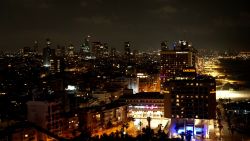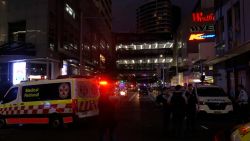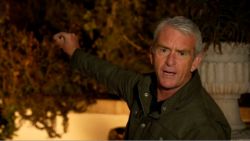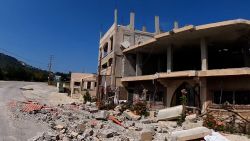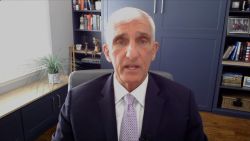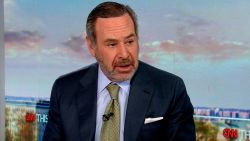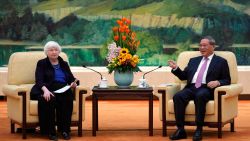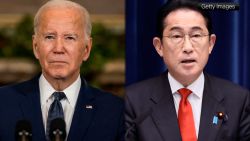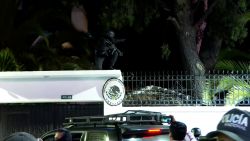The first person in Hong Kong to be prosecuted under the city’s sweeping new national security law has been denied bail after appearing in court on Monday.
Tong Ying-kit, 23, was charged with inciting secession and terrorist activities and is accused of ramming his motorbike into a group of police officers, injuring at least three, at a pro-democracy protest on Wednesday.
Tong, who was hospitalized after the incident and appeared at the West Kowloon Magistrates Court in a wheelchair, was allegedly a carrying a “Liberate Hong Kong” banner at the time – now grounds for inciting succession under the new law, prosecutors said.
The legislation, imposed on the territory by Beijing last week, criminalizes secession, subversion, terrorism, and collusion with foreign powers. People who are convicted of such crimes can face sentences of up to life in prison.
Many say the law marks an erosion of the city’s precious civil and political freedoms, as it dramatically broadens the powers of local and mainland authorities to investigate, prosecute and punish dissenters. Already, the law has sparked fear and concern among citizens who are unsure where that red line is and how it will impact their lives. Offenses under the law are broad and far-reaching, with no certainty of what actions will be deemed illegal until prosecutions are brought.
The central and local governments argue the law is long overdue and necessary to curb political unrest and uphold mainland sovereignty over the semi-autonomous financial hub.
The slogan “liberate Hong Kong, revolution of our times,” one of the most popular slogans of the anti-government protests which began last year, could result in a sedition charge under the new law, authorities said Thursday.
At court on Monday, Tong’s lawyer argued that the interpretation and meaning of the slogan is subjective and that it does not necessarily mean inciting secession or wishing to change the legal status of Hong Kong.
Chief Magistrate Victor So Wai-tak denied Tong bail under Article 42 of the new law and cited the severity of the case. Tong will next appear in court on October 6.
So is one of six magistrates handpicked by Hong Kong Chief Executive Carrie Lam to hear national security cases. One of the law’s most controversial provisions is the chief executive has the power to appoint judges to handle these cases, a move that critics say jeopardizes the territory’s independent judiciary.
Much about how the national security law will be applied remains unclear and Tong’s hearing is the first test for how these cases will be argued and proceed through the Hong Kong courts.
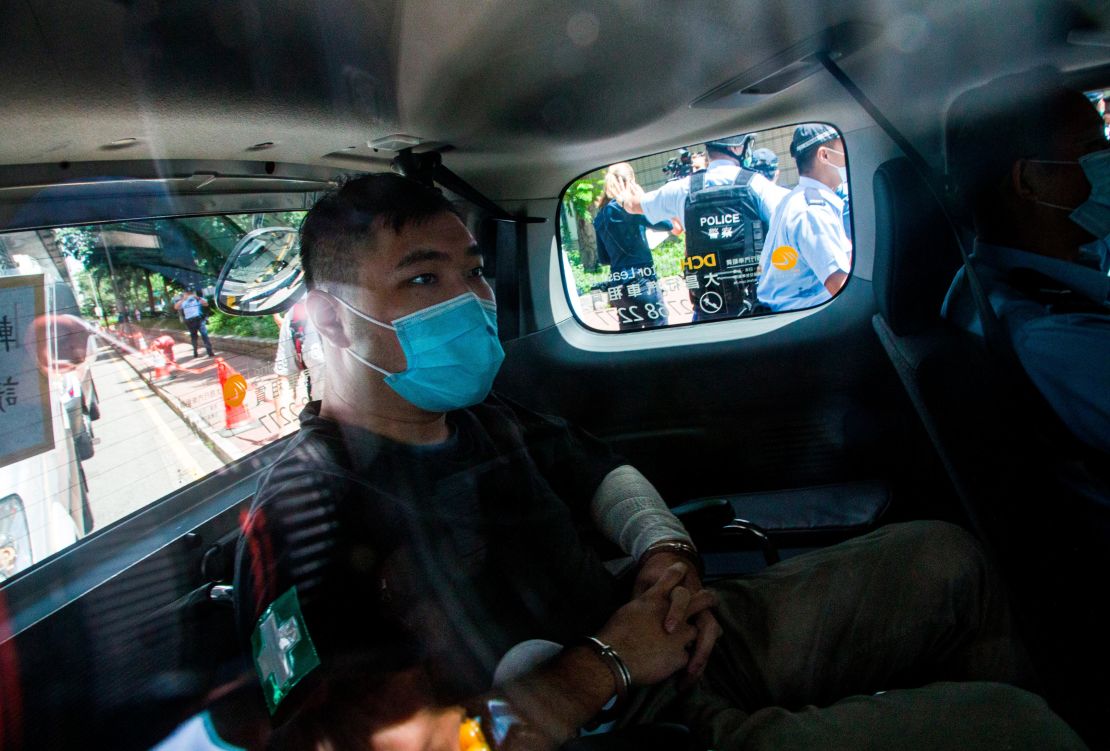
Fears of censorship
Joshua Wong, the prominent Hong Kong pro-democracy activist who helped lead the 2014 Umbrella Movement mass protests, also appeared in court on Monday, along with two other activists Ivan Lam and Agnes Chow, on separate charges relating to last year’s anti-government protests. Wong pleaded not guilty to inciting, organizing and participating in an unauthorized assembly.
Speaking outside the city’s Eastern Law Courts building, Wong said they will continue the fight and “We will not kowtow to the Communist regime.”
“Now is not the time for us to surrender or to give up, we wish to let the global community to know that, now the chilling effect exists anywhere in Hong Kong, it seems to be the new era after the national security law,” he said. “No matter what happens and whatever price it takes we still hope to fight until the last breath and they can’t kill us all.”
Wong, who intends to stand as a candidate in the city’s Legislative Council, is one of several political activists who have reportedly had their books pulled from library shelves in Hong Kong.
Public libraries have suspended loaning out several titles, with the library’s website listing them as “under review” on Saturday, according to public broadcaster RTHK. Among the titles are two books written by Wong, including one about the 2014 pro-democracy movement, and one from lawmaker Tanya Chan.
In a series of tweets, Wong said the move was evidence of a Chinese-style “censorship regime” being imposed on the former British colony.
“Although my books are published years before Hong Kong’s anti-extradition movement, they are now prone to book censorship,” he said. “Under the new law, it is one step away from the actual book banning.”
The Hong Kong government, including the Chief Executive Carrie Lam, has repeatedly insisted that the new law won’t affect freedom of speech. But many are concerned that the vague nature of the law’s language will lead to self-censorship.
Journalists and their sources are growing increasingly wary that as China takes a firmer grip on Hong Kong, they could be prosecuted. Academics, artists and other members of Hong Kong’s creative community are worried they could face censorship or even jail time for politically themed works – much of the city’s contemporary art is now centered around freedom, democracy and resistance. And some even caution that the city’s status as an international financial center could be impacted by the threat to free speech.
“This law is so vague and so overboard that it could potentially apply to just about any kind of behavior or speech and that’s exactly the Chinese government’s goal: It wants everyone to start and think ‘Oh wait a minute does this constitute sedition? Oh wait a minute, is that collusion?’” Sophie Richardson, China Director of Human Rights Watch (HRW) said last week.
Those fears are evident across a city already changed by the national security law.

Vivid protest iconography that was splashed across many pro-democracy shop fronts, walkways and pavements has been torn down. In the past week, political groups have disbanded, people have scrubbed their social media and WhatsApp chat history in fear that any sensitive material could fall foul of the new law if found, and more citizens are considering using a VPN and secure apps to protect themselves online.
Speaking to local media last week, Lento Yip Yuk-fai, chairman of the Hong Kong Internet Service Providers Association, said that companies will now have no choice but to help police if they make national security requests.
People are also questioning whether singing popular protest songs could expose them to arrest.
Prominent pro-democracy activist Nathan Law fled Hong Kong to an undisclosed location last week for what he said was his own safety. Speaking to CNN, he said that now was a “crucial time” for the city.
“We cannot abandon the international front, and we need public figures on the international level to do the international advocacy work,” he said. “I will continue my advocacy work no matter how threatening the government.”
However, for those tired of the unrest from increasingly violent protests last year that paralyzed Hong Kong’s streets, as well as the double economic impact from the protests and coronavirus pandemic, the law promises to restore order and peace to the city.
Hong Kong Justice Secretary Teresa Cheng told CNN on Friday that those who live and work in the city “want Hong Kong to be stable and prosperous.”
“They all want to move forward from the difficult times that we had last year. The national security law will give us just that environment for us to calm down, stop all that,” she said.
Ten people have been arrested under the law so far – all in relation to promoting Hong Kong independence. Police said all but one of those arrested have now been bailed until late July. They are facing charges of inciting or abetting others for the commission of secession or subversion, which could carry with it a fixed-term sentence of five years in prison.
CNN’s Sandi Sidhu, Hadas Gold, Stephy Chung, and James Griffiths contributed.






